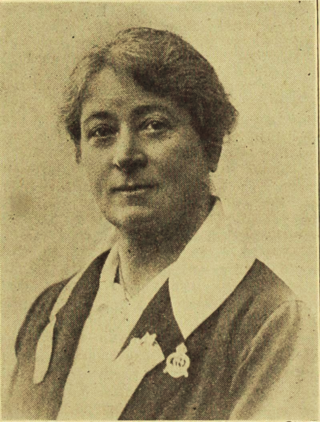Related Research Articles
Howard is an English-language given name originating from Old French Huard from a Germanic source similar to Old High German *Hugihard "heart-brave", or *Hoh-ward, literally "high defender; chief guardian". It is also probably in some cases a confusion with the Old Norse cognate Haward (Hávarðr), which means "high guard", and as a surname also with the unrelated Hayward. In some rare cases it is from the Old English eowu hierde "ewe herd". In Anglo-Norman the French digram -ou- was often rendered as -ow- such as tour → tower, flour → flower, etc.. A diminutive is "Howie" and its shortened form is "Ward". Between 1900 and 1960, Howard has ranked in the U.S. Top 200; between 1960 and 1990, it ranked in the U.S. Top 400; between 1990 and 2004, it ranked in the U.S. Top 600. People with the given name Howard or its variants include:

MacLeod, McLeod and Macleod are surnames in the English language. The names are anglicised forms of the Scottish Gaelic MacLeòid, meaning "son of Leòd", derived from the Old Norse Liótr ("ugly").
Carr is a common surname in northern England, a variant of Kerr, meaning "brushwood wet ground" in Middle English. The Old Norse kjarr means a "brushwood, thicket or copse" and may also come from the ancient Norse Kjarr translation meaning Kaiser from Caesar Kerr is also a Scottish variant, often from the Norse and from the Gaelic ciar, meaning "dusky". Carr is also a common surname in Ireland, where it often derives from the nickname, gearr, meaning "short of height". In some cases it is thought to come from the Welsh word cawr, meaning giant. Alternatively, in Ireland and Scotland, it may derive from the Irish and Scottish Gaelic cearr meaning pointed spear.
Melville is a surname and a given name.
Robson is an English surname. Originating in North East England, and derived from ‘Son of Robert’. The name, Robson, can be found all over the North East of England and over the border into Scotland. The Robson family was also a notorious Border Reaver clan being one of the four riding clans of North Tynedale, with the family stronghold being Falstone in Northumberland. Notable people with the surname include:
Bell is a surname common in English speaking countries with several word-origins.
Weston as a surname may refer to:
Scott is a surname of Scottish origin. It is first attributed to Uchtredus filius Scoti who is mentioned in the charter recording the foundation of Holyrood Abbey and Selkirk in 1120, the border Riding clans who settled Peeblesshire in the 10th century and the family lineage of the Duke of Buccleuch.
Pearson is an English surname. It may refer to:
King is an English surname. It is also an Anglicized form of the German surname Küng, which in many German dialects is pronounced like king. This originally German form is widespread among American Mennonites and Amish.
The surname Williamson was first found in the Royal burgh of Peebles, where this predominantly Scottish Clan who are a Sept of Clan Gunn held a Family Seat anciently, although their interests straddled the English Scottish border and they held territories as far south as Keswick in Cumberland.
Ferguson is an Anglicization of the Scots Gaelic "Macfhearghus", a patronymic form of the personal name Fergus which translates as son of the angry (one).
Richmond is an English surname.
Thomson is a patronymic surname meaning "son of Thom, Thomp, Thompkin, or other diminutive of Thomas", itself derived from the Aramaic תום or Tôm, meaning "twin". The surname is documented in Cheshire records before and after the 1066 Norman Conquest. Variations include Thomason, Thomasson, Thomerson, Thomoson, and others. The French surname Thomson is first documented in Burgundy and is the shortened form for Thom[as]son, Thom[es]son. Variations include Thomassin, Thomason, Thomsson, Thomesson, Thomeson, and others. Thomson is uncommon as a given name.

Baker is a common surname of Old English (Anglo-Saxon) origin and Scotland where Gaelic was anglicized. From England the surname has spread to neighbouring countries such as Wales, Scotland and Ireland, and also to the English speaking areas of the Americas and Oceania where it is also common. The gaelic form of Baker in Scotland and Ireland is Mac a' Bhacstair. Some people with the surname have used DNA to trace their origins to Celtic countries and specifically to the Baxter sept of the Clan MacMillan in Scotland. It is an occupational name, which originated before the 8th century CE, from the name of the trade, baker. From the Middle English bakere and Old English bæcere, a derivation of bacan, meaning "to dry by heat". The bearer of this name may not only have been a baker of bread. The name was also used for others involved with baking in some way, including the owner of a communal oven in humbler communities. The female form of the name is Baxter, which is seen more in Scotland. The German form of the name is Bäcker.

Kelly is a surname of Irish origin. The name is a partially anglicised version of older Irish names and has numerous origins, most notably from the Ui Maine. In some cases it is derived from toponyms located in Ireland and Great Britain; in other cases it is derived from patronyms in the Irish language.
Gibb is a surname of Scottish origin dating to the sixteenth century. It is a diminutive of "Gilbert".
Burnett is a Scottish surname. It is derived from a nickname from the Old French burnete, brunette, which is a diminutive of brun meaning "brown", "dark brown". Another proposed origin of the name is from burnete, a high quality wool cloth originally dyed to a dark brown colour.
Chisholm is a Scottish surname. Variants include Chisholme and Chisolm.
Ingram or Ingrams is a surname, from the given name Ingram.
References
- ↑ "Surname: Howie". surnamedb.com. Retrieved 2008-02-13.